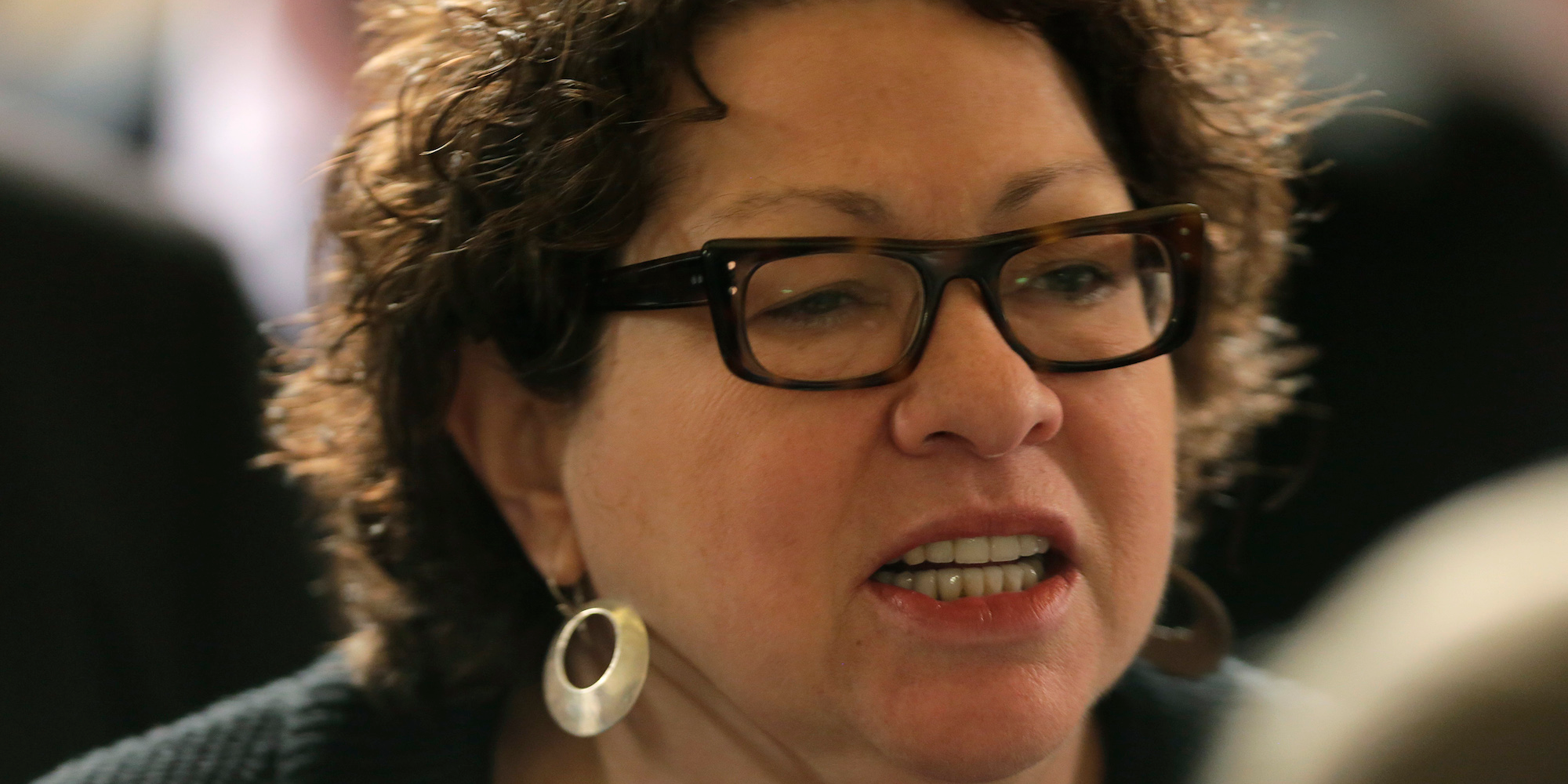- Justice Sonia Sotomayor slammed the Supreme Court’s decision to uphold President Donald Trump’s travel ban.
- She wrote an impassioned dissenting opinion that contended the majority’s ruling failed to “safeguard” the principle of religious neutrality embedded in the First Amendment.
- Sotomayor contended the majority had ignored Trump’s “anti-Muslim” rhetoric.
- The Supreme Court justice said a “reasonable observer” would conclude the travel ban was motivated by “anti-Muslim animus.”
Justice Sonia Sotomayor slammed the Supreme Court’s decision to uphold President Donald Trump’s travel ban in an impassioned dissenting opinion that contended the ruling failed to “safeguard” the principle of religious neutrality embedded in the First Amendment.
The Supreme Court on Tuesday voted 5-4 to uphold the controversial travel ban, which primarily targets majority-Muslim countries.
The White House has put forward several versions of the travel ban since Trump took office, facing legal obstacles in the process. The latest is the third iteration and places restrictions on travelers coming to the US from Syria, Iran, Yemen, Somalia, Libya, North Korea, and Venezuela.
“The United States of America is a Nation built upon the promise of religious liberty,” Sotomayor wrote in her opinion. “Our Founders honored that core promise by embedding the principle of religious neutrality in the First Amendment. The Court’s decision today fails to safeguard that fundamental principle.”
Sotomayor pointed to Trump's rhetoric, including his call for a "total and complete shutdown of Muslims entering the United States" during the US presidential campaign, as evidence the travel ban is motivated by "anti-Muslim animus."
"A reasonable observer would conclude that the Proclamation was motivated by anti-Muslim animus," Sotomayor wrote. "The majority holds otherwise by ignoring the facts, misconstruing our legal precedent, and turning a blind eye to the pain and suffering the Proclamation inflicts upon countless families and individuals, many of whom are United States citizens."
She accused those who voted to uphold the travel ban of "completely" setting "aside the President's charged statements about Muslims."
Sotomayor wrote that she was unconvinced the travel ban does not target Muslims simply because it also affects North Korea and Venezuela.
"The President's inclusion of North Korea and Venezuela does little to mitigate the anti-Muslim animus that permeates the Proclamation," Sotomayor wrote, adding that the travel ban "overwhelmingly targets Muslim-majority nations." In Sotomayor's view, the travel ban "masquerades behind a façade of national-security concerns."
The Supreme Court justice also said there were "stark parallels" between the logic employed by the Supreme Court in upholding the Trump travel ban and the decision in Korematsu v. United States, which upheld the executive order to detain Japanese Americans during World War II.
Chief Justice John Roberts and Justices Anthony Kennedy, Clarence Thomas, Samuel Alito, and Neil Gorsuch voted to uphold the travel ban. Justices Stephen Breyer, Elena Kagan, and Ruth Bader Ginsburg joined Sotomayor in dissenting.
Meanwhile, Trump celebrated the ruling, tweeting, "SUPREME COURT UPHOLDS TRUMP TRAVEL BAN. Wow!"

